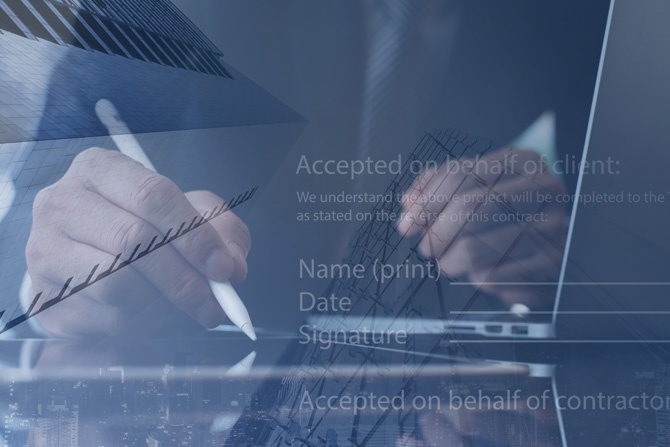The COVID-19 pandemic has accelerated the digitization of many financial operations, and this includes the increasing use of electronic promissory notes. As we work to develop new products and services to meet the evolving needs of FHLBank San Francisco members and their customers, we’re pleased to report that as of Mar. 31, 2021, we began accepting eNotes as pledged collateral from our member financial institutions.
For those financial institutions — whether FHLBank members or not — that may be just beginning to explore the adoption of eNotes, I’ll begin with a brief overview.
In simple terms, an eNote is a promissory note that is created, signed, and stored electronically according to the standards for transferrable records established under the Electronic Signatures in Global and National Commerce Act (ESIGN Act) and Uniform Electronic Transactions Act (UETA), collectively known as the eSignature Laws.
To be considered a transferrable record, an eNote must:
- Have the same terms and conditions as a wet-signed paper promissory note would have under Article 3 of the Uniform Commercial Code;
- Be electronically signed;
- Reliably establish the identity of the entity/person who has the authority to control the eNote in a sale or pledge as collateral (control of an eNote is established if the eNote is created, stored and assigned in a manner that ensures that a single authoritative copy of the eNote exists); and
- Be signed using an eSignature process and secured by a tamper-evident signature and Version 1.02 MISMO Category 1 SMART Doc®.
Not all electronic notes qualify as eNotes, as defined by the eSignature Laws and the government-sponsored enterprises (GSEs) — Fannie Mae, Freddie Mac, and the FHLBanks. Examples of electronic notes that are not eNotes include the following:
- A scanned copy of a paper note
- A situation in which the borrower did not consent to an eNote upfront
- An electronically signed note without a single authoritative copy (that is, copies are created that are not easily differentiated from the original)
- An electronically signed note that is not stored in an eVault or not listed on an eRegistry such as the MERS® eRegistry
- An electronically signed note that is not a SMART Doc
We’ve also seen some confusion regarding the difference between eNotes and eSignatures. Documents, including promissory notes, with eSignatures, are documents signed electronically, per the ESIGN Act. eNotes, in contrast, are promissory notes that adhere to the eSignature Laws, both the ESIGN Act and UETA. So, while eNotes are also electronically signed, there are other loan documents (disclosures, for example) that may have eSignatures without having to comply with both eSignature Laws.
A lender’s origination process may include eSignatures even if the process does not include eNotes, or the lender may use hybrid closings in which borrowers electronically sign some closing documents while wet-signing other documents, like the promissory note.
There are costs involved in the transition to eNotes. Both the MERS eRegistry and eVault providers charge individual loan transaction fees to register an eNote or transfer a loan to an eVault. In addition, eVault providers may have a one-time or annual fee. However, lenders’ overall costs will be lower after adopting eNotes.
The FHLBank eNotes acceptance implementation process
The eNote requirements for FHLBanks were developed in 2020 to align with those of the other GSEs to ensure there is a single standardized process for lenders to sell, hold, or pledge eNotes. After finalizing the requirements, FHLBanks worked with the MERS eRegistry to establish the FHLBanks as a secured party when lenders pledged eNotes to us as eligible collateral.
The final phase of FHLBank San Francisco’s implementation journey began in late 2020 when they launched a pilot project with a member lender that already had the key requirements in place to begin pledging eNotes to us. This seasoned member had:
- Selected and implemented its eClosing system;
- Become a member of the MERS eRegistry and completed set up and testing with MERS; and
- Selected and engaged an eVault provider.
The pilot was designed to enable us to develop and test critical procedures for the acceptance of eNotes. These procedures enabled a member to provide detailed reporting of its pledged and de-pledged eNotes and transfer eNotes to our eVault, with FHLBank San Francisco as a secured party.
Following the successful conclusion of the pilot, we are now able to accept eNotes for 1-4 family mortgage loans and closed-end second mortgages as pledged collateral from any member ready to pledge them.
The use of eNotes is rapidly becoming a standard part of the residential lending production process, and more and more lenders are including eNote implementation in expense planning. As of January 2022, 165,729 eNote loans had been registered.

Lenders embrace eNotes
The use of eNotes is rapidly becoming a standard part of the residential lending production process, and more and more lenders are including eNote implementation in expense planning. As of January 2022, 165,729 eNote loans had been registered.
There is good reason for the uptick in the adoption of eNotes, as they offer greater convenience for consumers, lower costs for lenders and quicker transfers of ownership. More specifically, the use of eNotes offers the following benefits:
- A faster and easier signing process
- Earlier loan funding
- Flexibility in signing and closing locations
- Reduced shipping and storage fees
- Fewer signing errors
- Less paper
- Improved collateral control and audit capabilities
- Elimination of lost paper notes
Take the next step
If your institution has not yet begun pledging eNotes, contact us to explore the opportunity to transition away from wet-signature notes. More information is also available on our eNotes page at fhlbsf.com. Resources include a “What is an eNote?” video, detailed eNotes Collateral Acceptance Requirements and Guidelines, and an eNotes Readiness Checklist.










